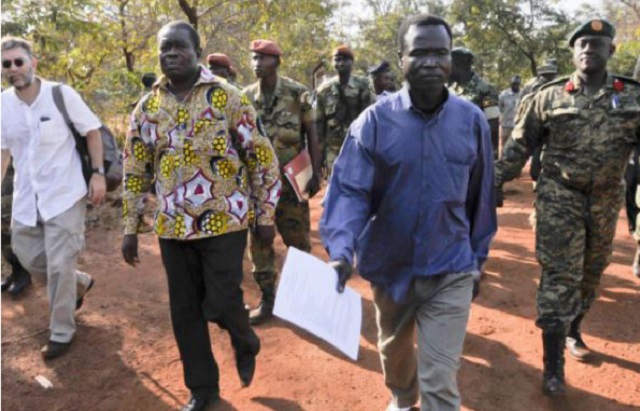
The ICC also rejected the arguments of the Defence concerning traditional justice mechanisms, noting that there exists no possibility under the Statute to replace a term of imprisonment with traditional justice mechanisms, or to incorporate traditional justice mechanisms into the sentence in any other way.
It also noted that Acholi traditional justice mechanisms are not in widespread use, to the extent that they would replace formal justice, and that they are reserved to members of the Acholi community, meaning that their use would mean that some victims belonging to other ethnic groups would be excluded.
The Chamber emphasised that reconciliation, whatever its form, is a process in which victim participation is essential, and noted that it is clear that many victims of the crimes committed by Dominic Ongwen do not support the idea of traditional justice in the present case, and that they have also criticized the fact that submissions in this regard were made to the Chamber without consulting them.
The Chamber analysed one-by-one the gravity of each of the 61 crimes for which Dominic Ongwen was convicted, finding several aggravating circumstances applicable to some or even most crimes. Aggravating circumstances included particular cruelty, multiplicity of victims, the victims being particularly defenseless, and discrimination on political grounds and discrimination against women.
The Chamber imposed individual sentences for each crime, taking the mitigating circumstance of Dominic Ongwen’s childhood and abduction by the LRA into due account. The highest individual sentences were of 20 years. Other sentences pronounced for individual crimes were of 14 or eight years of imprisonment.
In its determination of the joint sentence for all the crimes for which Dominic Ongwen was convicted, the Chamber declined to sentence Dominic Ongwen to life imprisonment, considering his individual circumstances and in order to envisage a concrete prospect for Dominic Ongwen to eventually rebuild his life.
The Chamber then, by majority, decided to impose a joint sentence of 25 years of imprisonment. The majority, composed of Judge Bertram Schmitt and Judge Péter Kovács, is of the view that this joint sentence adequately reflects the strongest condemnation by the international community of the crimes committed by Dominic Ongwen and acknowledges the great harm and suffering caused to the victims.
At the same time, the majority held that such a joint sentence acknowledges Dominic Ongwen’s unique personal history and safeguards the prospect of his successful social rehabilitation and, consequently, the concrete possibility of future re-integration into society. Judge Raul Cano Pangalangan appended a partly dissenting opinion on this matter as he would have sentenced Dominic Ongwen to a total period of imprisonment of 30 years.
The ICC also issued an order for submissions on reparations, noting that the right of victims to reparations is also an essential part of the system of justice at the Court, and stated that it will “push forward the reparation stage of the proceedings with vigour and the utmost care.”
But Elise Keppler, the Associate Director, International Justice Programme at Human Rights Watch said Ongwen’s sentence should not obscure a gaping hole in accountability for LRA crimes. Joseph Kony – the LRA’s founding leader and only remaining living ICC suspect for LRA crimes – remains a fugitive.
According to a report released last year by Invisible Children, a U.S based non-profit, Joseph Kony has been operating in a disputed border area of Sudan and South Sudan since mid-last year.

****
 The Independent Uganda: You get the Truth we Pay the Price
The Independent Uganda: You get the Truth we Pay the Price



